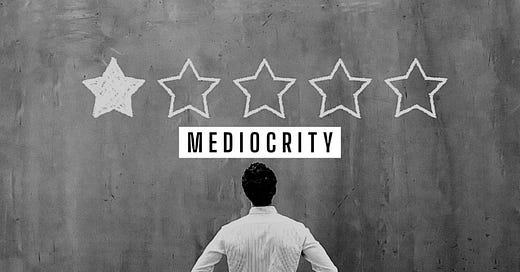The Culture of Minimum Effort: Why Professionalism is Disappearing
Why showing up, replying, and doing your job now counts as exceptional.
A popular phrase floats around these days: "No answer is an answer." People throw it out as if it were some profound wisdom. But it isn't. It's not an answer. It's a lack of professionalism. It's poor communication, poor manners, and a reflection of how far the bar has dropped in today's work culture.
Not replying to emails. Not following up. Not taking …
Keep reading with a 7-day free trial
Subscribe to The Black Tie Report to keep reading this post and get 7 days of free access to the full post archives.



